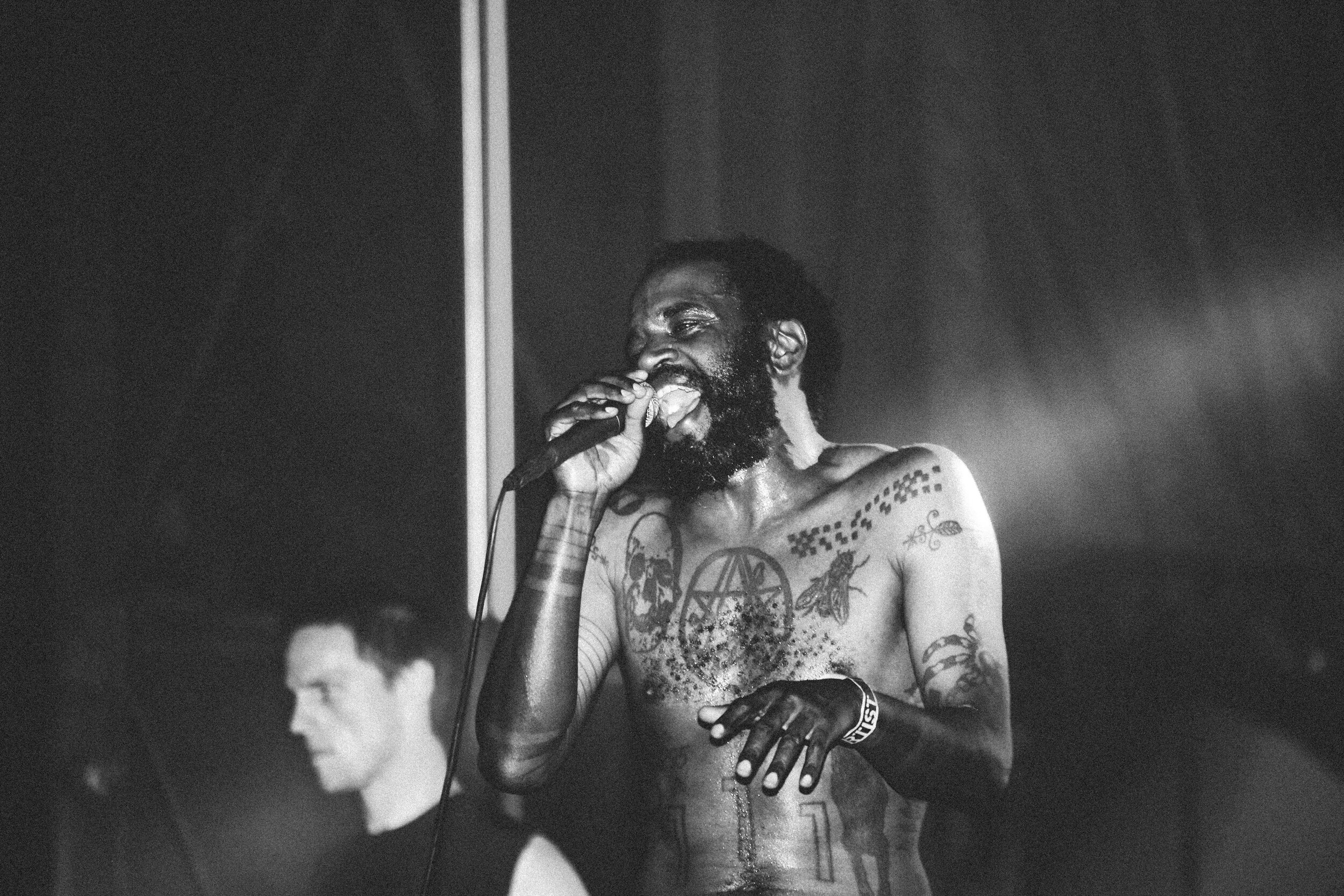In its nascence, there was no sump of cultural discharge as pernicious as 4chan. Today, the site still retains a reputation for loosely-moderated filth. But as the first wails of the last decade rang out, that filth was being curtailed. For a brief moment before the tenure of the alt-right, 4chan's soup of racism, real-world violence and child pornography was bevelled into a risqué playroom for ironic edgelords. The board’s users were wannabe disruptors; pussycats. Those who longed to undermine society but were too neutered and apathetic to fight—abeyant bodies orbiting a dried well.
This biome provided everything that Death Grips needed to flourish. Their project fed on paranoia, dissociation, impotent fury—but was shot through with loose irony and surreal humour. Death Grips peacocked itself in the garments of Norweigan black metal, carrying not just the genre’s ungodly associations but its dorkiness. Like everything else on 4chan at the time, they simulated transgression. Death Grips pulled at society’s fabric but never tore; speaking forbidden urges, never acting on them. In another time they would have been called posers. In the dawn of post-truth, all that mattered was the pose you struck.
But for a flurry of messageboard attention, Death Grips were an overnight sensation. The band was an ultimate case of 'right place, right time'. In the dawn of superfast broadband, streaming and memeing, the place was everywhere. The time was whenever the listener chose. Death Grips showcased the internet’s ability to corral like-minded individuals. Esoteric music once belonged to tiny, cloistered local scenes. But Ride and co. used innovative mass-marketing and free distribution to find and link those five weirdos in every town in the world.
ARGs and label-dropping fuckery marked the band as not just essential music, but a rollercoaster of extratextual hijinx. These ranged from sublime (the ARG which led to the unveiling of ‘Inanimate Sensation’) to the downright childish (drummer Zach Hill’s erect, Sharpie-scribbled penis adorning an album cover). But with each stunt the band’s reach and acclaim swelled.
Their music was no different—for five years straight, each Death Grips album rendered its predecessor obsolete. The band's career was an ongoing act of irreverence. In a market ruled by algorithm-surfing trendies, they challenged themselves and their own listeners at every turn. Their risk-taking churned up and rode a wave of its own. This culminated with the release of The Powers That B in 2015; a double album which even within its own runtime redefined Death Grips’ sound more than once. The Powers That B also had a sense of finality—opening and closing with tracks which demystified MC Ride, pushing the band’s extreme sound to its limit. 2015 also saw the band’s (short-lived) retirement, hastily scribbled onto a napkin and posted online.
They should probably have called it quits then. They instead reformed, and released two LPs and several short-form projects. These projects were accompanied by an entropic rumble. Once-arresting content felt rehashed into obsolescence. The band joined their own legion of imitators. Like so much else this decade, Death Grips descended from clarity and purpose into confused wheel-spinning. Before the 2010s, their birth was inconceivable—the dawning 2020s seem to herald their death. I just hope the next hype is as much fun.
Words by Andrew O’Keefe



